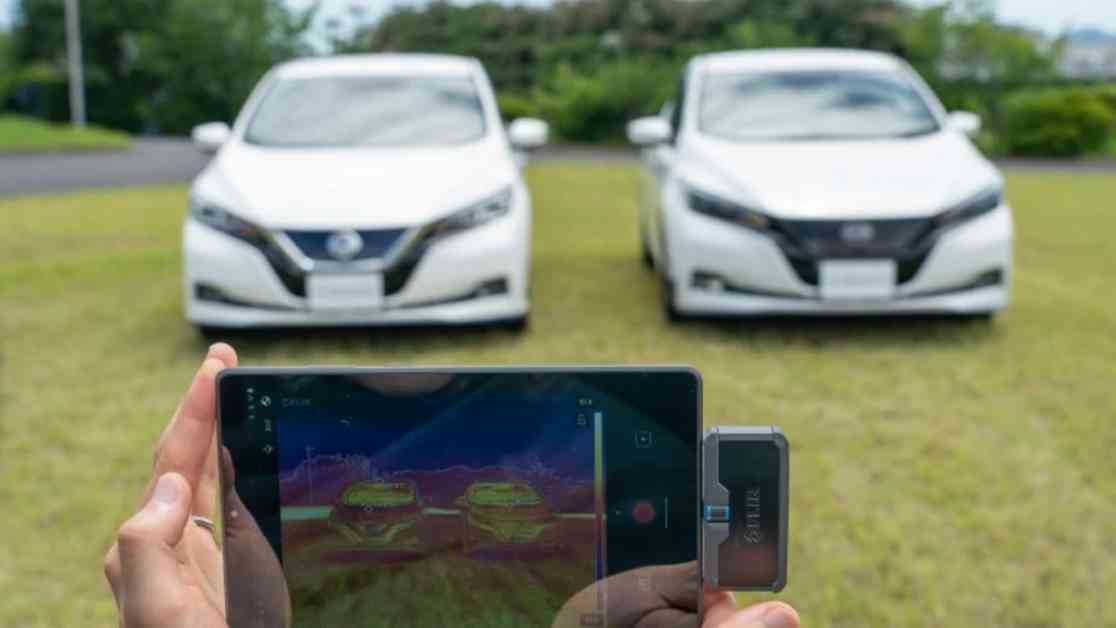Nissan has recently introduced a groundbreaking “cool paint” technology designed to reduce temperatures inside vehicles, aimed at providing a more comfortable driving experience. The company conducted tests on white vehicles in Tokyo’s Haneda airport, an ideal location to evaluate the effectiveness of the new paint due to its unshaded areas. The vehicles appeared ordinary but felt significantly cooler to the touch, with the cool paint reducing roof-panel temperatures by 12 degrees Celsius and interior temperatures by 5 degrees Celsius.
The innovative paint, which is six times thicker than traditional coatings, poses a challenge for commercialization despite its promising results. Nissan’s development of the cool paint aligns with the increasing demand for energy-efficient solutions, especially in electric vehicles where air conditioning usage impacts driving range.
Unlike conventional cooling materials used in buildings, Nissan’s cool paint is spray-applicable and features a clear coat similar to typical automotive paint. The paint contains “metamaterial,” a synthetic composite material with unique properties not commonly found in nature. It consists of particles that reflect near-infrared rays from sunlight, preventing heat absorption by the paint molecules, and another particle that generates electromagnetic waves to deflect solar energy away from the vehicle.
Collaborating with Radi-Cool from China, a company specializing in heat-reducing films, fabrics, and coatings, Nissan aims to revolutionize vehicle cooling technology. Radi-Cool’s expertise in creating products that lower heat levels has been instrumental in the development of the cool paint. Nissan’s partnership with Radi-Cool sets it apart from other Japanese automakers and demonstrates a commitment to innovation in the automotive industry.
Susumu Miura, the Nissan Research Center manager leading the project, emphasized that the electromagnetic waves emitted by the paint pose no health risks to individuals, as similar waves are naturally present in the environment. Miura envisions a future where vehicles remain cool without consuming additional energy, highlighting the company’s dedication to sustainability and user comfort.
Nissan’s cool paint technology represents a significant step forward in enhancing the driving experience and promoting environmental consciousness in the automotive sector. As the company continues to refine the paint and overcome commercialization challenges, consumers can look forward to more energy-efficient and comfortable vehicles in the future.









